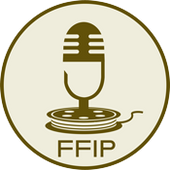As a dedicated host of a fly fishing podcast and an angler constantly striving to enhance my skills, I've spent the last six years rigorously testing gear and refining my equipment choices. It's not just about following trends, it's about truly understanding what works and what doesn't. This journey led me to discover Monic Fly Lines, a brand that stands out not only for its innovation but also for its commitment to environmental sustainability. Honestly there isn't a line you can go wrong with out there these days but there are ways to steer towards what may work better for you. Here is why I stand behind Monic as my first go to line of choice.
Eco-Friendly and Safer for the Environment
My increasing awareness of my environmental impact has made me critical of the traditional fly fishing lines, which often contain PVC. This material is not only harmful during production but also contributes to environmental pollution as it degrades. Monic offers a compelling alternative with their PVC-free lines. By choosing Monic, I'm not just improving my fishing experience; I'm also contributing to cleaner waterways and healthier ecosystems. Their lines are designed with the environment in mind, which resonates deeply with me. Learning about Monic’s beginnings and their founder, Bob Goodale—an engineer who envisioned better production methods on a fly fishing trip in Belize—reinforced my trust in their mission. They even run a 100% recyclable program with a send-back option, a testament to their commitment.
Longer, More Accurate Casts
Monic's fly lines enable smoother casts thanks to their lack of PVC, which typically causes memory issues like twists and bends. This reduction in line memory allows for longer, more accurate casts. I've noticed a significant difference in my casting, especially when aiming for those hard-to-reach spots. Their patented coating technologies and expertly designed tapers have been a game-changer, eliminating the frustrations of tangles and short casts.
Durability and Low Memory
Speaking of durability, Monic's lines are tough. Their innovative coatings resist kinking and coiling, which not only improves the line's lifespan but also ensures consistent performance over time. I've put these lines through the wringer—stepping on them, dragging them, even practicing casts on rough surfaces—and they've held up remarkably well. The low memory of these lines means I spend less time dealing with tangles and more time fishing, which is a huge plus.
Stealthy Presentations with Clear Lines
Stealth can be crucial, and Monic’s clear floating lines are practically invisible on the water. They float high and land softly, reducing the chances of spooking fish. This is particularly important for me as I often fish in clear, calm waters where even the slightest disturbance can be detrimental. The finesse these lines allow has let me sneak up on fish I would have otherwise alarmed with a less subtle approach.
Made in the USA: Supporting American Craftsmanship
Lastly, Monic Fly Lines are handmade in Boulder, Colorado, since 1995. I have a strong preference for American-made products as they often embody quality and support local economies. Knowing these lines are crafted by skilled engineers who take pride in their work gives me confidence in their performance and durability. Plus, it feels good to support a company that values quality and community as much as I do.
In conclusion, switching to Monic Fly Lines has been a pivotal part of my fishing gear evolution. Their commitment to quality, innovation, and environmental stewardship aligns with my values as an angler and a podcaster. If you're looking to make a responsible choice that doesn't compromise on performance, consider Monic for your next fly fishing trip.
Tight lines and wet nets!
***Do you want to get deals on equipment, fly fishing trips, and lots of information? Become a member of the Loyalty Club on the Fly Fishing Insider Podcast.
FFIP does receive a small commission from affiliate sales links. However, not all links are directed towards affiliate programs as I stay neutral and base recommendations more so on my own experiences. These commissions are used to support the FFIP expenses related to maintaining and hosting the show, blog, etc. Thank you for your support and by purchasing through the links within my articles when applicable!
By Christian Bacasa
Host of the Fly Fishing Insider Podcast
Fly Fishing Insider Podcast Official Website
Instagram Fly Fishing Insider Podcast
Instagram Dupeafish
Facebook
Pinterest
Twitter
LinkedIn
Tumblr
Watch on YouTube








